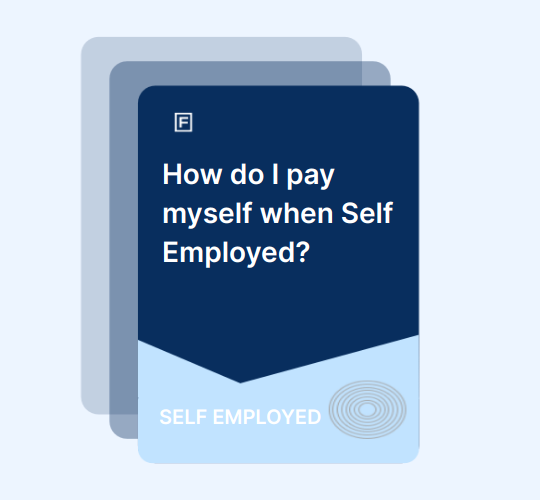Sole Trader (Self Employed) vs Limited Company
When you decide to become self-employed, one of the first decisions you’ll need to make is to decide on a business structure: operating as a sole trader, or through your own limited company.
There are a few traits that identify sole traders: you’re taxed as an individual (and don’t pay corporation tax), you have unlimited liability (your business isn’t considered a separate legal entity) and you have sole ownership over your business.
There are several reasons why the sole trader structure is the most popular option among businesses in the UK. It’s easy to set up—all you need to do is to register as self-employed with HMRC, choose a business name, and you’ll be all set to begin trading.
And if you change your mind sometime down the road—whether you decide to stop trading or to change to a limited company structure—the process of termination or transition remains fairly simple and straightforward. Unlike with limited companies, there’s no need to take additional steps such as applying to strike off your company.
You’ll also enjoy full control over your business, as there aren’t shareholders you’ll need to answer to. Sole traders also have fewer compliance requirements compared to limited company directors, which means that you’ll benefit from less paperwork, greater convenience and lower accounting fees.
Switching from Self Employed to Limited Company
You started out as a sole trader—but as your business scales, there comes a point in time where it becomes more efficient to trade as a limited company.
There are a few reasons why sole traders decide to make the transition.
Their profits may have grown to the point where it’s more tax efficient to trade as a limited company. They may decide it’s time to bring in shareholders or directors, or feel that their business could benefit from the increased credibility that a limited company structure brings.
Here’s what the process of transition involves: firstly, you need to decide if you’ll be the sole director. After which, you’ll need to notify HMRC of the change, select a business name, and register your limited company with Companies House.
Once the registration is complete, there are a few more items to cross off your checklist. You need to inform your stakeholders, set up a business bank account, set up your payroll, update your company details on your business documents and get your accounts sorted out.
Limited Company Filing Deadlines
Being a limited company director comes with several legal responsibilities. In addition to your statutory duties, you’re also responsible for meeting your filing deadlines.
These include:
- File your Self Assessment by 31st January following the end of the relevant tax year.
- If you’re VAT-registered, you need to file your VAT returns 1 month and 7 days after your VAT quarter end date.
- File your company accounts 9 months after your company year-end. If you’re in your first trading year, your first annual accounts are due 21 months after your date of incorporation
- File your Confirmation Statement up to 14 days after the due date. The due date is 12 months after the date your company was incorporated, or 12 months after the date you filed your previous Confirmation Statement.
- File your company tax return 12 months after the end of the relevant tax year.
- If you’ve just begun employing staff or using subcontractors for construction work, you need to register as an employer before an employee’s first payday.
- If you already have employees, there are a number of deadlines you need to meet for your payroll year end.
- Submit your final payroll report for the year before your employee’s final payday for the tax year ending 5th April.
- Provide your employees with the P60 by 31st May (following the end of the relevant tax year).
- File employee benefits and expenses using your payroll software, and submit your P11D and P11d(b) forms by 6th July.
- In addition to the payroll year-end deadlines, you’re also required to:
Send the FPS on or before your employees’ payday. The FPS must be submitted each time you pay your employee. This means that if your employee is paid weekly, you’ll need to make 52 submissions across the year.


















.webp)